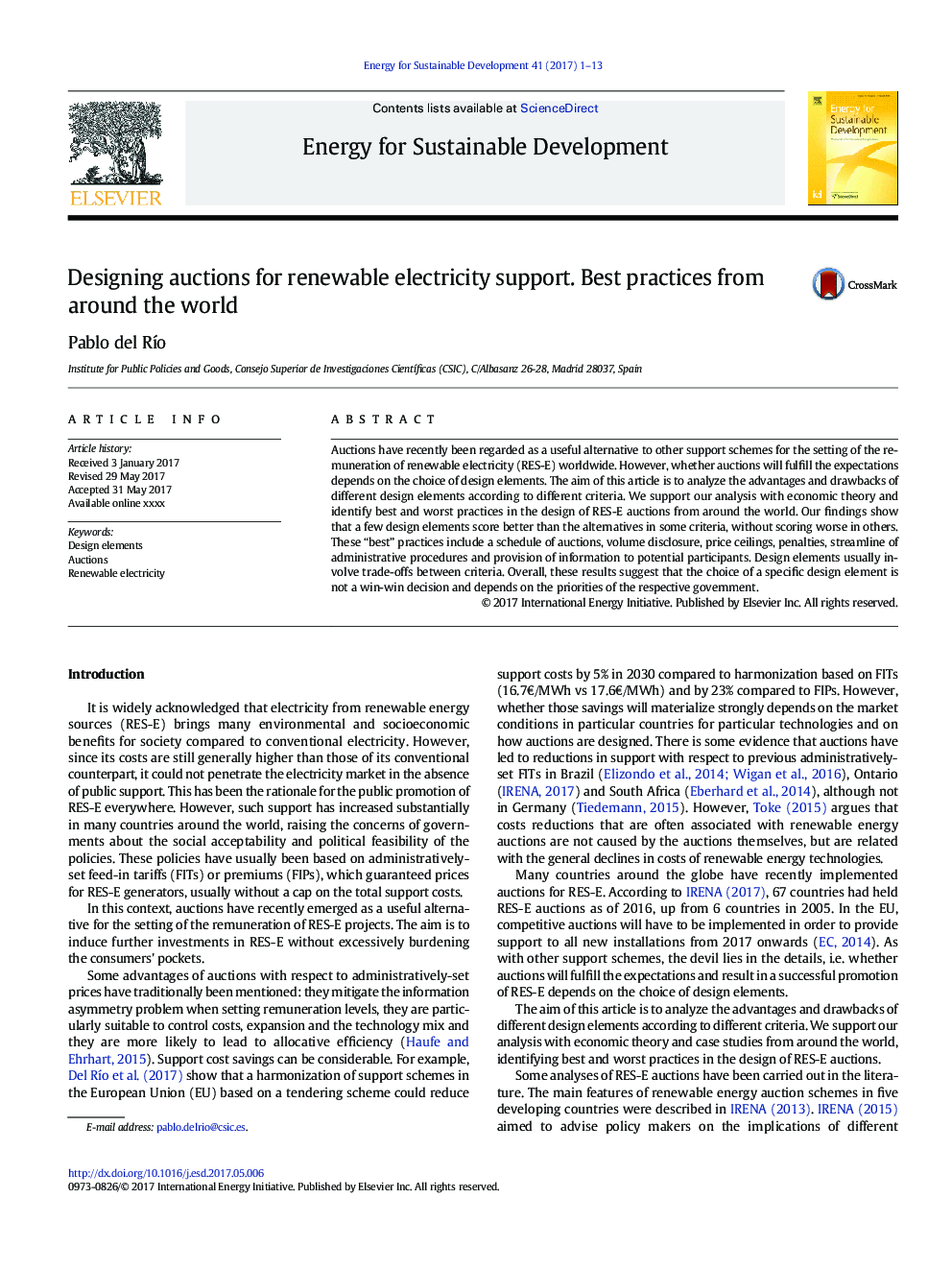| Article ID | Journal | Published Year | Pages | File Type |
|---|---|---|---|---|
| 5114295 | Energy for Sustainable Development | 2017 | 13 Pages |
Abstract
Auctions have recently been regarded as a useful alternative to other support schemes for the setting of the remuneration of renewable electricity (RES-E) worldwide. However, whether auctions will fulfill the expectations depends on the choice of design elements. The aim of this article is to analyze the advantages and drawbacks of different design elements according to different criteria. We support our analysis with economic theory and identify best and worst practices in the design of RES-E auctions from around the world. Our findings show that a few design elements score better than the alternatives in some criteria, without scoring worse in others. These “best” practices include a schedule of auctions, volume disclosure, price ceilings, penalties, streamline of administrative procedures and provision of information to potential participants. Design elements usually involve trade-offs between criteria. Overall, these results suggest that the choice of a specific design element is not a win-win decision and depends on the priorities of the respective government.
Related Topics
Physical Sciences and Engineering
Energy
Energy (General)
Authors
Pablo del RÃo,
